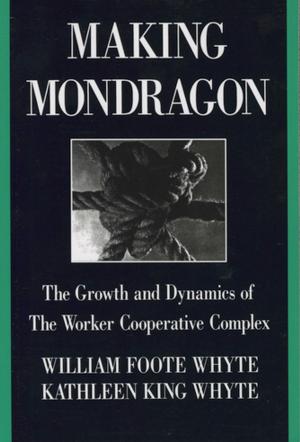Anatomy of the Red Brigades
The Religious Mind-set of Modern Terrorists
Nonfiction, History, Western Europe| Author: | Alessandro Orsini | ISBN: | 9780801461392 |
| Publisher: | Cornell University Press | Publication: | December 15, 2009 |
| Imprint: | Cornell University Press | Language: | English |
| Author: | Alessandro Orsini |
| ISBN: | 9780801461392 |
| Publisher: | Cornell University Press |
| Publication: | December 15, 2009 |
| Imprint: | Cornell University Press |
| Language: | English |
The Red Brigades were a far-left terrorist group in Italy formed in 1970 and active all through the 1980s. Infamous around the world for a campaign of assassinations, kidnappings, and bank robberies intended as a "concentrated strike against the heart of the State," the Red Brigades' most notorious crime was the kidnapping and murder of Italy's former prime minister Aldo Moro in 1978. In the late 1990s, a new group of violent anticapitalist terrorists revived the name Red Brigades and killed a number of professors and government officials. Like their German counterparts in the Baader-Meinhof Group and today's violent political and religious extremists, the Red Brigades and their actions raise a host of questions about the motivations, ideologies, and mind-sets of people who commit horrific acts of violence in the name of a utopia.
In the first English edition of a book that has won critical acclaim and major prizes in Italy, Alessandro Orsini contends that the dominant logic of the Red Brigades was essentially eschatological, focused on purifying a corrupt world through violence. Only through revolutionary terror, Brigadists believed, could humanity be saved from the putrefying effects of capitalism and imperialism. Through a careful study of all existing documentation produced by the Red Brigades and of all existing scholarship on the Red Brigades, Orsini reconstructs a worldview that can be as seductive as it is horrifying. Orsini has devised a micro-sociological theory that allows him to reconstruct the group dynamics leading to political homicide in extreme-left and neonazi terrorist groups. This "subversive-revolutionary feedback theory" states that the willingness to mete out and suffer death depends, in the last analysis, on how far the terrorist has been incorporated into the revolutionary sect.
Orsini makes clear that this political-religious concept of historical development is central to understanding all such self-styled "purifiers of the world." From Thomas Müntzer's theocratic dream to Pol Pot's Cambodian revolution, all the violent "purifiers" of the world have a clear goal: to build a perfect society in which there will no longer be any sin and unhappiness and in which no opposition can be allowed to upset the universal harmony. Orsini’s book reconstructs the origins and evolution of a revolutionary tradition brought into our own times by the Red Brigades.
The Red Brigades were a far-left terrorist group in Italy formed in 1970 and active all through the 1980s. Infamous around the world for a campaign of assassinations, kidnappings, and bank robberies intended as a "concentrated strike against the heart of the State," the Red Brigades' most notorious crime was the kidnapping and murder of Italy's former prime minister Aldo Moro in 1978. In the late 1990s, a new group of violent anticapitalist terrorists revived the name Red Brigades and killed a number of professors and government officials. Like their German counterparts in the Baader-Meinhof Group and today's violent political and religious extremists, the Red Brigades and their actions raise a host of questions about the motivations, ideologies, and mind-sets of people who commit horrific acts of violence in the name of a utopia.
In the first English edition of a book that has won critical acclaim and major prizes in Italy, Alessandro Orsini contends that the dominant logic of the Red Brigades was essentially eschatological, focused on purifying a corrupt world through violence. Only through revolutionary terror, Brigadists believed, could humanity be saved from the putrefying effects of capitalism and imperialism. Through a careful study of all existing documentation produced by the Red Brigades and of all existing scholarship on the Red Brigades, Orsini reconstructs a worldview that can be as seductive as it is horrifying. Orsini has devised a micro-sociological theory that allows him to reconstruct the group dynamics leading to political homicide in extreme-left and neonazi terrorist groups. This "subversive-revolutionary feedback theory" states that the willingness to mete out and suffer death depends, in the last analysis, on how far the terrorist has been incorporated into the revolutionary sect.
Orsini makes clear that this political-religious concept of historical development is central to understanding all such self-styled "purifiers of the world." From Thomas Müntzer's theocratic dream to Pol Pot's Cambodian revolution, all the violent "purifiers" of the world have a clear goal: to build a perfect society in which there will no longer be any sin and unhappiness and in which no opposition can be allowed to upset the universal harmony. Orsini’s book reconstructs the origins and evolution of a revolutionary tradition brought into our own times by the Red Brigades.















